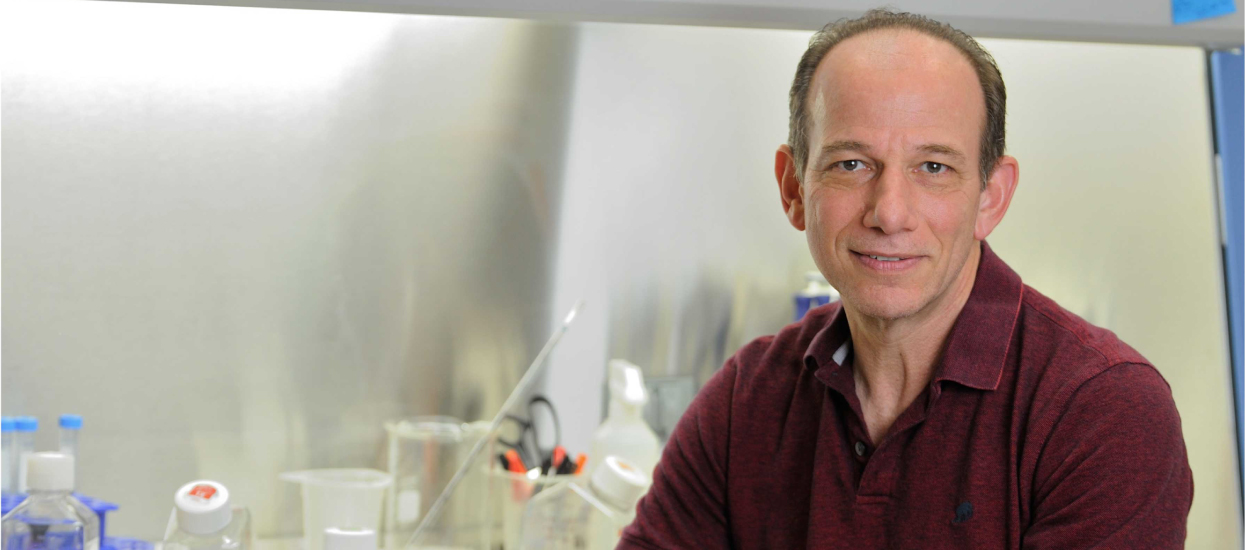Cancer Research: Coordinated Effort to Improve Human Health
By Wynne Parry
Science is the best weapon against cancer. A number of labs across FAU have joined the fight, investigating aspects of the disease and potential means to prevent it. Now, the university is seeking to connect these independent efforts, an initial step in a longer-term plan to develop a center for research and cancer care.
“We are systematically looking at the cancer research already underway at the university to see how these efforts could best be coordinated,” said Gregg Fields, Ph.D., professor and chair of the Department of Chemistry and Biochemistry, who is leading this effort.
“The big picture is thinking about how we take discoveries from our labs and find ways to implement them to treat patients,” he said. To accomplish this, the university is looking for partners to create a new cancer center.
Fields is one of roughly 20 researchers spread across the university and partner institutions, such as Scripps Research located on the Jupiter campus, conducting cancer-related research. He recently received more than $708,000 in grant funds from the Florida Department of Health to develop compounds to stop the spread of breast cancer and melanoma, a type of skin cancer, within the body.
Research in his lab focuses on enzymes that help cancer cells escape from an initial tumor to invade other parts of the body, a process that can make cancer much deadlier. The compounds on which Fields is working, in collaboration with a biotech company, interfere with these enzymes.
Others are taking different approaches to identifying cancer-fighting compounds. Amy Wright, Ph.D., research professor at FAU’s Harbor Branch Ocean- ographic Institute, looks under water. She extracts molecules from sponges and corals, and hands them over to her colleague Esther Guzmán, Ph.D., associate research professor at the institute, to test for promising cancer fighting activity. Together, they have identified a number of compounds that reduce levels of a cancer-linked protein, called survivin, in cells.
Still others are examining complications of the disease itself. Andy Khamoui, Ph.D., an assistant professor in the Department of Exercise Science and Health Promotion, studies muscle wasting and weight loss in cancer patients, a deadly condition known as cachexia — for which there is no approved treatment.
To further develop their discoveries, scientists need to involve patients. This is where the right partnership comes in. Such a relationship would, for example, give scientists access to patients’ tumor samples or to patients themselves.
"The big picture is thinking about how we take discoveries from our labs and find ways to implement them to develop new treatments.” — Gregg Fields, Ph.D.
Patients would benefit from a partnership, too. Florida has a significant elderly population, the group most affected by the disease, and some densely populated areas lack good access to existing cancer centers. An FAU-affiliated center could potentially fill the gap that exists in Palm Beach and Broward Counties, Fields said.
“Of course, there is an intellectual component to what we do, but scientists do like to see their discoveries go somewhere,” Fields said. And in this case, the destination may be better health for patients.
If you would like more information, please contact us at dorcommunications@fau.edu.
